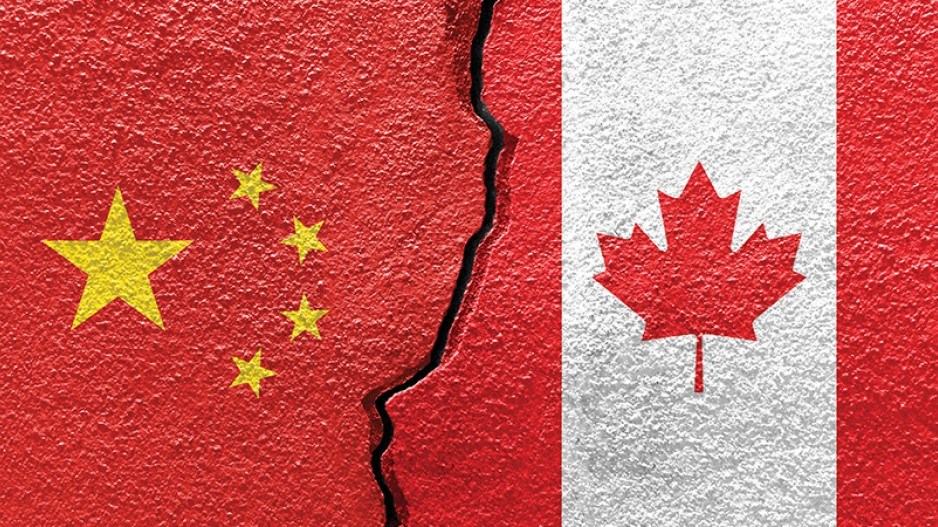More than two months have passed since the government of the People’s Republic of China ended the arbitrary detention of Canadians Michael Spavor and Michael Kovrig.
This conclusion may have been expected to change perceptions, which were particularly bad before they returned home. In July, almost two-thirds of Canadians (65%) held unfavourable views on China. In August, 56% were ready to boycott the upcoming Winter Olympics in Beijing.
The notion of a boycott immediately brings back the experiences of the Summer Olympics in 1980 and 1984. Amateur athletes lost out on the opportunity to compete in front of global audiences because of political reasons, after years of training and hard work. It is evident that those two editions of the games did not feature the best that the entire world had to offer.
A boycott does not jeopardize athletes now in the same way that it did in 1980 and 1984. It all changed with the “professionalization” of the Olympic games that began in earnest with the 1992 Summer Games in Barcelona. Some disciplines now look at the Olympics as one more event in a calendar that is already filled with meets, travel and opportunities for promotion and income.
This month, when Research Co. and Glacier Media asked Canadians again, support for a boycott of the Beijing Winter Games stood at 56% across the country, exactly the same as when we measured in August and slightly higher than the proportion observed in our original survey (54% in March).
The fact that we did not see a change in the level of support for a boycott is noteworthy, as two key events have taken place: the liberation of the two Michaels and the confirmation that National Hockey League (NHL) professionals will be able to represent their countries in Beijing.
There is no gender gap on the issue of Canada boycotting these Winter Games, and support for this course of action is high across all three age groups: 58% among those aged 55 and over, 54% among those aged 35 to 54 and 57% among those aged 18 to 34.
Clear majorities of Ontarians (60%), British Columbians (59%) and Quebecers (56%) think Canada should stay away from the Beijing Winter Olympics, along with 51% of residents of Saskatchewan and Manitoba, 50% of Atlantic Canadians and 49% of Albertans. A boycott is also a good idea for most Canadians who voted for the Liberal Party (61%), the Conservative Party (59%) and the New Democratic Party (NDP) (58%) in this year’s federal election.
The International Olympic Committee (IOC) continues to claim that their sporting events are not the venue for political discourse. Canadians disagree. Almost three in four respondents (74%) believe that athletes who want to protest China’s human rights record during the 2022 Winter Olympics should be able to do so, and just over seven in 10 (71%) believe the IOC should not punish those who decide to speak out.
A significant proportion of Canadians (70%) express concerns about the health and safety of Canadian athletes who participate in the Beijing Winter Olympics. The COVID-19 pandemic, and the lack of transparency that has marked the dealings of the host nation, are partly to blame for this extremely high number. We still remember the way in which two Canadians who resided in China were unjustifiably detained to advance Beijing’s goals.
Canadians are not particularly enthralled by the upcoming edition of the Winter Olympics. Almost half (45%) say they will make a conscious effort to refrain from watching the games. Once again, the three most populous provinces lead the way in tuning out of this spectacle in February: British Columbia (49%), Ontario (46%) and Quebec (also 46%).
Some Canadians are already implementing their own personal boycott. We found that a majority of Canadians (52%) claim to check the labels of the products they buy for the home or family to see where they were manufactured. Sizable majorities of Canadians say they never refrain from buying products made in Europe (68%), the United States (62%) or Mexico (56%), and just under half feel the same way about goods from Russia (49%) and India (48%).
Canadians put China in a completely different category. In our survey, only 32% of respondents say they never avoid products from this country, a significantly lower proportion than what we see for other entities whose governments have been criticized for internal political decisions. This means that two-thirds of Canadians (68%) are already enacting their own type of embargo against China with their wallets, with 20% saying they avoid their products “most of the time” and 15% saying they do it “all of the time.”
At this point, some Canadians are consciously planning to steer clear of the Beijing games. Others are already avoiding products manufactured in China. Both of these actions are more effective than the so-called “diplomatic boycott” that is being discussed in North America. With just over two months to go before the Winter Olympics, most Canadians continue to favour a real boycott—the kind of action that actually resonates with organizers, the host country and the rest of the world.
Mario Canseco is president of Research Co.
Results are based on an online study conducted from December 4 to December 6, 2021, among a representative sample of 1,000 adults in Canada. The data has been statistically weighted according to Canadian census figures for age, gender and region. The margin of error, which measures sample variability, is plus or minus 3.1 percentage points, 19 times out of 20.




